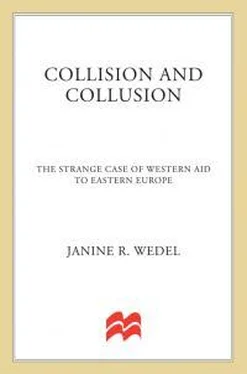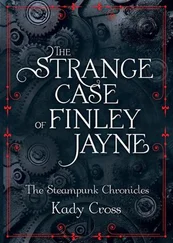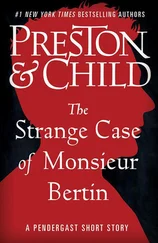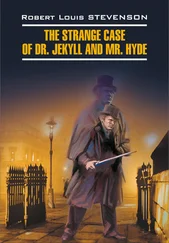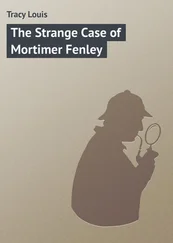69. Steven Sampson, “Romanian Political Culture and NGOs,” presented at Sinaia NGO Conference, March 1994, p. 5.
70. Sarah E. Mendelson and John K. Glenn, “Democracy Assistance and NGO Strategies in Post-Communist Societies,” Carnegie Endowment Working Papers, Democracy and Rule of Law Project, no. 8, Washington, D.C.: Carnegie Endowment for International Peace, February 2000, p. 19.
71. Steven Sampson, “Romanian Political Culture and NGOs,” presented at Sinai NGO conference, March 1994, p. 5.
72. Sarah E. Mendelson and John K. Glenn, “Democracy Assistance and NGO Strategies in Post-Communist Societies,” Carnegie Endowment Working Papers, Democracy and Rule of Law Project, no. 8, Washington, D.C.: Carnegie Endowment for International Peace, February 2000, p. 17.
73. Ibid., p. 48.
74. Interview with Jakub Wygnański director of database on Polish NGOs, KLON, July 15, 1994.
75. For a more detailed description of the legal and fiscal framework of Central and Eastern European NGOs, see Daniel Siegel and Jenny Yancey, The Rebirth of Civil Society: The Development of the Nonprofit Sector in East Central Europe and the Role of Western Assistance, New York, NY: Rockefeller Brothers Fund, Inc., 1992.
76. Interviews of February 18, 1998 and August 3, 2000, with Jakub Wygnański, board member, Forum on Nongovernmental Initiatives, and board member, Batory Foundation. For figures charting the growth of NGOs in Central Europe, see Krzysztof J. Ners and Ingrid T. Buxell, Assistance to Transition Survey 1995 Warsaw, Poland: Institute for EastWest Studies, Pecat, 1995, pp. 75-76.
77. Alan Ware’s Between Profit and State documents the interdependency between “intermediate organizations” and both the state and the for-profit sector of the economy. Ware’s analysis shows that U.S. nonprofit human-service agencies depended on government sources for between 41 and 90 percent of their income. Alan Ware, Between Profit and State: Intermediate Organizations in Britain and the United States, Cambridge, United Kingdom: Polity Press, 1989, pp. 2, 106, 109, 113, and tables on pp. 74, 110, and 111.
78. Antoni Kamiński, “The New Polish Regime and the Spector of Economic Corruption.” Summary of paper presented at the Woodrow Wilson International Center for Scholars, April 3, 1996, p. 4.
79. Antoni Kamiński, “Corruption under the Post-Communist Transformation,” Polish Sociological Review, vol. 2, no. II8, 1997, p. 100. For further discussion of these entities of unclear status, see also Janine R. Wedel, “Clans, Cliques, and Captured States: How We Misunderstand ‘Transition’ in Central and Eastern Europe and the Former Soviet Union,” presented to the National Council for Eurasian and East European Research and the National Institute of Justice, 2000, and forthcoming as National Council Working Paper.
80. Legal analyst Jan Stefanowicz estimates that some 30 percent of the economy falls into this category (interviews of July 14 and 15, 1999).
81. Interview with Piotr Kownacki, July 26, 1999.
82. Antoni Kamiński, “Corruption under the Post-Communist Transformation,” Polish Sociological Review, vol. 2, no. II8, 1997, p. 100.
83. Marta Bruno, “Playing the Co-Operation Game: Strategies Around International Aid in Post-Socialist Russia,” Surviving Post-Socialism: Local Strategies and Regional Responses in Eastern Europe and the former Soviet Union, Sue Bridger and Frances Pine, eds., London, United Kingdom: Routledge, 1998, pp. 181-182.
84. Steven Sampson, “Romanian Political Culture and NGOs,” presented at Sinaia NGO Conference, March 1994, pp. 4 and 6.
85. Marta Bruno, “Playing the Co-Operation Game: Strategies Around International Aid in Post-Socialist Russia,” Surviving Post-Socialism: Local Strategies and Regional Responses in Eastern Europe and the Former Soviet Union, Sue Bridger and Frances Pine, eds., London, United Kingdom: Routledge, 1998, pp. 171 and 179.
86. C. M. Hann, “Foreword,” Surviving Post-Socialism: Local Strategies and Regional Responses in Eastern Europe and the former Soviet Union, Sue Bridger and Frances Pine, eds., London, United Kingdom: Routledge, 1998, p. xiii.
87. Sarah E. Mendelson and John K. Glenn, “Democracy Assistance and NGO Strategies in Post-Communist Societies,” Carnegie Endowment Working Papers, Democracy and Rule of Law Project, no. 8, Washington, D.C.: Carnegie Endowment for International Peace, February 2000, p. 44.
88. Interview with István Tökés, head of the Department of International Relations in the Ministry of the Environment, June 7, 1994.
89. Interview with Elena Petkova, February 10, 1998.
90. Interview with Judit Vásárhelyi, former board member of the Regional Environmental Center, April 26, 1994.
91. U.S. General Accounting Office, Environmental Issues in Central and Eastern Europe: U.S. Efforts to Help Resolve Institutional and Financial Problems, Washington, D.C.: GAO, May 1994, p. 55.
92. Ibid., pp. 54-57.
93. Interview with Elena Petkova, February 10, 1998, other sources connected with the Center.
94. U.S. General Accounting Office, Environmental Issues in Central and Eastern Europe: U.S. Efforts to Help Resolve Institutional and Financial Problems, Washington, D.C.: GAO, May 1994, pp. 54-57.
95. Interviews with Judit Vásárhelyi, former board member of the Regional Environmental Center, April 26, 1994, and with István Tökés, head of the Department of International Relations in the Ministry of the Environment, June 7, 1994.
96. Conversations with Marianne Ginsberg, senior program officer, German Marshall Fund, Spring 1998, July 5, 2000, and July 10, 2000.
97. Ibid.
98. Quoted in “The Environmental Partnership for Central Europe, Report 1995/96,” Washington, D.C.: German Marshall Fund, 1997, p. 5. See also A Decade of Nurturing the Grassroots: The Environmental Partnership for Central Europe 1991-2000, Environmental Consortium Partnership for Central Europe: Czech Republic: Staré Město, 2000.
99. Interview with Jakub Wygnański, June 17, 1998.
100. Interview with Jakub Wygnański, June 17, 1998.
101. Interview with Jakub Wygnański, February 18, 1998.
102. Interviews with Jakub Wygnański, February 18, 1998 and August 3, 2000.
103. Interview with Jay Austin, January 15, 1998.
104. Interview with Jakub Wygnański, June 17, 1998.
105. Conversation with Elena Petkova, March 30, 1998.
106. Interview with Adam Pomorski, Russia specialist and former expert to the Batory Foundation’s East-East Commission, July 4, 2000.
107. Conversations with USAID official Brian Wickland, April 15, 1999 and December 21, 1999; and “Poland-American-Ukraine Cooperation Initiative (PAUCI): Secretariat Scope of Work,” March 17, 1999, USAID document.
108. Interview with Jakub Wygnański, February 18, 1998.
109. Interview with Jakub Wygnański, June 17, 1998.
CHAPTER FOUR
1. Briefing for the U.S. Agency for International Development, prepared by Richard P. Bernard, executive director, Resource Secretariat for the Russian Federation Commission on Securities and the Capital Market, entitled “Regulation, Training and Infrastructure Development: Current Resources and 1995-96 Projects,” March 29, 1995, p. 1.
2. With regard to cumulative obligations as of September 30, 1999, the U.S. Department of State reported $14.5 billion to the former Soviet Union, including $6.9 billion to Russia and $2.1 billion to Ukraine ( U.S. Government Assistance to and Cooperative Activities with the New Independent States of the Former Soviet Union, FY 1999 Annual Report, prepared by the Office of the Coordinator of U.S. Assistance to the NIS, January 2000, tables).
Читать дальше
